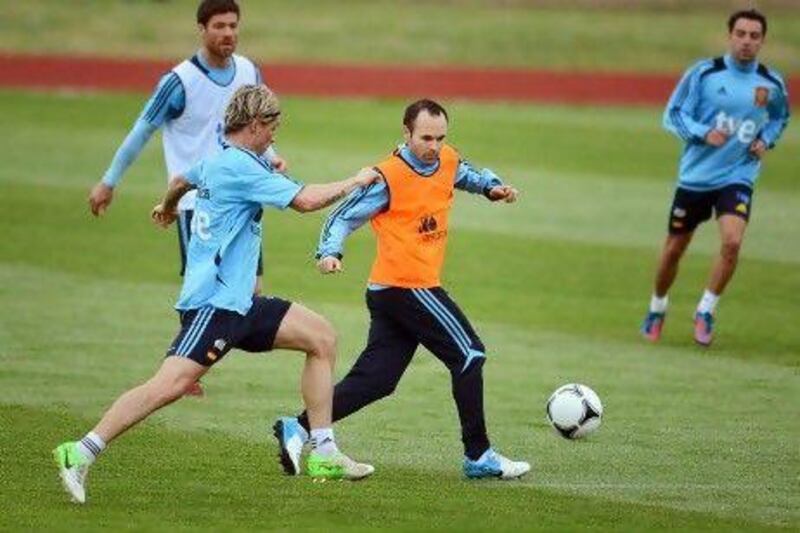If anyone can testify how Spain feel, it may be France. Not the current French team, admittedly, but the side of 2002, World Cup winners and European champions eyeing the uncharted territory of a third successive major tournament triumph.
A decade ago, France's bid ended in embarrassment. Beaten by Senegal in their opening game, they exited the 2002 World Cup without scoring a goal, let alone winning a game. The Spanish challenge to make history at Euro 2012 has not always been exhilarating, but at least it is not ignominious.
But the difficulty of the task ahead should be apparent to the majority of the side. They have been trying to climb a different footballing Everest, coming close to scaling a great peak without completing a momentous ascent.
Twice in the past four seasons, Barcelona have attempted to become the first team to retain the Champions League in its expanded incarnation. In both campaigns they have been Europe's outstanding footballing side but, twice, they have been stopped in the semi-finals. Indeed, opponents set out to halt them, not to out-play or out-pass them, for few think they can beat Barcelona at their own game. Inter Milan, in 2010, and Chelsea, this year, succeeded in beating them through other methods.
They have planted ideas in others' minds, too, about how to stop Barcelona or Spain: by packing the defence, congesting the centre of the pitch, performing with organisation, determination and concentration and looking to spring the occasional counterattack. Chelsea's extraordinary approach is being mirrored.
Admirable as their exploits at the Nou Camp were, that was a fluke. The concern for Spain is that they seem more stoppable than Barcelona. Italy fully deserved their draw on June 10. Croatia, too, would have probably taken a merited point on Monday but for the group dynamics and, with a goal required, they made attacking changes and conceded.
Spain are ever more Barcelona-like but risk becoming, to use the derisory tag applied to Arsenal, Barcelona Lite, of offering passing without penetration.
When Fernando Torres has not been on the field, Vicente del Bosque has copied Pep Guardiola's tactic of operating without a specialist striker, instead using a "false 9" to break from deeper positions and thus incorporating another passer.
Barcelona's "false 9" is Lionel Messi, scorer of 73 goals for his club last season. Cesc Fabregas has chipped in with two for Spain, but he does not have the same promise of being a goal-a-game man.
Messi is one of three crucial components of the Barcelona side which Spain lack. Two are through nationality, one bad luck. If David Villa had suffered a broken leg against the Qatar side Al Sadd in December, Spain's record scorer would have taken his place for both club and country. Barcelona operate without a centre forward, but the presence of Villa on the left of their front three provides the predator they lacked against Chelsea. The joint top scorer in the World Cup, Villa added the incision Spain seemed to lack against Italy and Croatia.
A group of like-minded passers - Fabregas, Xavi, Andres Iniesta, plus, for Spain, Xabi Alonso and David Silva - can congregate in the centre of the pitch, but Barcelona benefit from width in the person of Daniel Alves, the one-man right flank who can seem both distance runner and sprinter.
The underrated, unselfish Alvaro Arbeloa is Spain's answer to Alves, with one difference: when opponents defend narrowly and Arbeloa is left in acres of space near the touchline, he appears ignored by both sides. Too often, Spain have been reluctant to trust the full-back to add width and thus stretch the game.
Rather, the playmakers have a game within a game, Xavi, Iniesta, Busquets and Alonso passing among themselves. It is why Spain get branded one-dimensional, though it is a dimension that has served them well, and why they can appear obstinate. The direct running of Torres or the width the winger Jesus Navas provides - only as a substitute thus far - would allowed them to outflank defences or get behind them.
If the regular sight of Spain lifting silverware is to continue, greater variety may be required on the pitch.
Follow us
[ @SprtNationalUAE ]






